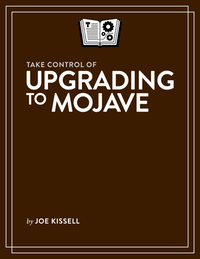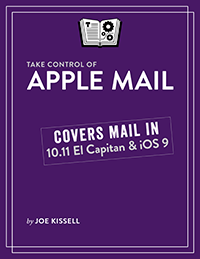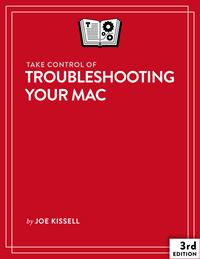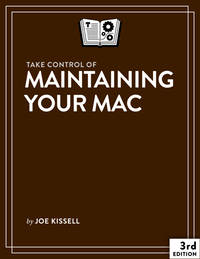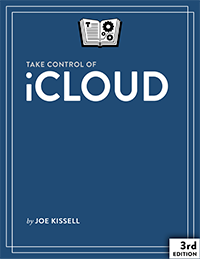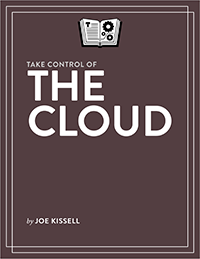Tech Heroes: Spock
Note: This is the first in a series of articles on my technology heroes, three figures who inspired this site and my whole approach to technology. You can also read about Douglas Adams and Mr. Rogers (yes, really).
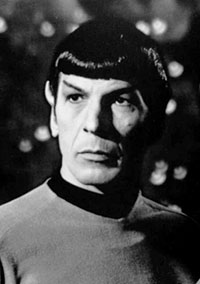
The first episode of Star Trek (the original series, or TOS to fans) aired four months before I was born. By the time I was old enough to appreciate it, it was already in syndication, and I watched it every day after school. I can’t overstate how influential Star Trek was in shaping my interests, my aspirations, and my character.
Although I later came to prefer more modern incarnations of the franchise, I’ve always had a soft spot for Spock, the pointy-eared, green-blooded Vulcan science officer of the starship Enterprise. (And, lucky for me, the character stuck around for other versions of the show, including the 2009 J.J. Abrams reboot and 2013’s Star Trek Into Darkness.) I was terribly sad to hear of actor Leonard Nimoy’s death in February 2015, because unlike his fictional character, he won’t be resurrected for another round of adventures.
Spock’s favorite word was logic. Although he was half human, he embraced his Vulcan heritage, which meant discarding emotion. Science, reason, and a dispassionate compulsion to seek the truth defined his character. Because of his extensive scientific training and keen technological skills, he was the key to overcoming many of the challenges that faced the Enterprise and its crew. He didn’t smile much, but he had a cunning sense of humor. And he was definitely the guy you wanted to have on your side when an inexplicable alien force threatened to destroy you. All in all, a great role model for a nerdy kid like me.
To be fair, Chief Engineer Scott was quite the technologist too, and one could argue that Spock was more about pure science while Scott was in charge of applied science (or technology). But Spock was always the one to reason his way from basic concepts to a tangible solution.
One episode that shows Spock’s tech skills nicely is “City on the Edge of Forever.” Kirk and Spock travel back in time to the Chicago of 1930 in order to undo damage McCoy inadvertently caused to the the flow of history. The information Spock needs to fix the problem is stored in his tricorder, but he claims he can access it only by hooking it up to the ship’s computer. Kirk goads him into creating a makeshift computer out of 1930s technology, and sure enough, Spock manages to cobble together something functional out of vacuum tubes and wires. When the woman who’s renting them a room asks what he’s up to, he replies, matter-of-factly, “I am endeavoring, ma’am, to construct a mnemonic memory circuit using stone knives and bearskins.” With the information they learn from Spock’s circuit, he and Kirk are able to stop the event that would have changed the future disastrously.
When my 21st-century gadgets are acting up, or when circumstances leave me without Wi-Fi or a smartphone or whatever other resource I normally use, I challenge myself to think like Spock, stuck in 1930 and badly in need of technology that won’t be developed for centuries. I certainly don’t have Spock’s depth of scientific knowledge (or his serene demeanor), but I like to think that given enough research and systematic experimentation, some solution—however imperfect—will eventually present itself.
Spock’s view of technology didn’t start and end with electronic equipment. He mastered mental and physiological technologies, too:
-
No phaser? No problem. Spock knew how to perform the Vulcan nerve pinch, a technique to render an assailant unconscious with a precise squeeze on the neck.
-
Vulcans’ cultivation of the mind extends to an intimate process known as Vulcan mind meld, in which two minds merge briefly for direct transfer of thoughts, memories, and feelings.
-
Spock practiced meditation, which as I’ve mentioned definitely qualifies as technology.
-
Emotionless or not, Spock was known to play beautiful, soothing music on his Vulcan lute. Music and musical instruments involve all sorts of technology.
Spock embraces the broadest definition of technology, and exemplifies a rigorous, scientific approach to problem-solving that I admire greatly. And yet, despite his endless insistence on logic, rejection of emotion, and strong ties to his Vulcan culture, he exhibited the best qualities of humanity. At his funeral, Kirk famously eulogized: “Of my friend, I can only say this. Of all the souls I have encountered in my travels, his was the most…human.”
For all these reasons, Spock earns a place on my short list of tech heroes.



